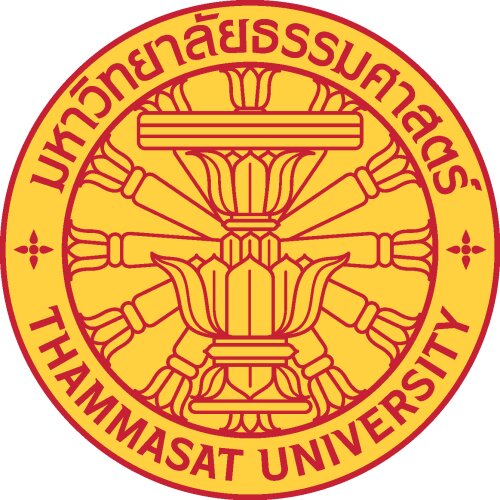Best Education Law Lawyers in Bangkok
Share your needs with us, get contacted by law firms.
Free. Takes 2 min.
List of the best lawyers in Bangkok, Thailand
Legal guides written by Smart Legal Solutions:
- Main Legal Measures to Protect Foreign Investment in Thailand
- The importance of the geographical indications for the Thai economy
About Education Law in Bangkok, Thailand
Education Law in Bangkok, Thailand, encompasses various legal issues related to the education system within the city and country. This branch of law regulates schools, teachers, and students through policies that address educational standards, funding, school obligations, student rights, and much more. The Ministry of Education in Thailand plays a crucial role in monitoring the implementation of these policies to ensure that educational institutions operate within the legal framework.
Why You May Need a Lawyer
Individuals and organizations often seek legal guidance in Education Law for several reasons. Parents might need legal assistance to understand their child's educational rights or address issues like discrimination, bullying, or special educational needs. Schools and educational institutions may require legal advice to comply with mandates of the Ministry of Education or to navigate complex employment issues with staff. Additionally, issues regarding academic misconduct, curriculum disputes, or policy changes can also necessitate legal intervention.
Local Laws Overview
Several key aspects of local laws in Bangkok are particularly relevant to Education Law:
- Compulsory Education: Under Thai law, children must complete a minimum of nine years of compulsory education.
- Rights and Protections: Students are entitled to certain rights, including the right to education and protection from discrimination and abuse.
- School Administration: Schools must comply with various administrative requirements, including registration with the Ministry of Education, adherence to curriculum standards, and staff qualifications.
- Higher Education: Universities and colleges must follow guidelines regarding admissions, accreditation, and program offerings.
- Special Education: Laws ensure that students with disabilities have access to appropriate education tailored to their needs.
Frequently Asked Questions
1. What are the main responsibilities of the Ministry of Education in Thailand?
The Ministry is responsible for forming education policies, regulating schools and curriculum, ensuring quality education, and protecting students' rights.
2. How can I address a situation where my child is being bullied at school?
You should report the situation to school officials first. If it remains unresolved, consulting with an education lawyer can help address the issue legally.
3. Are there laws protecting students with disabilities?
Yes, Thailand has laws ensuring that students with disabilities receive appropriate education and support based on their specific needs.
4. What actions can I take if my child's school does not comply with educational standards?
First, try addressing the issue with school administrators. If necessary, legal action or consultation with educational authorities may be required.
5. Can foreign students access public education in Bangkok?
Foreign students can attend public schools, though different rules may apply. It's best to check with the Ministry of Education for specific requirements.
6. How are school fees regulated in Thailand?
While public schools typically offer free education, private school fees are not strictly regulated and can vary widely.
7. What should a school do about a teacher accused of misconduct?
Schools must conduct a thorough investigation and follow legal procedures, which may involve engaging legal services to ensure compliance with labor laws.
8. Can parents challenge the school curriculum?
Parents can raise concerns with school management or the Ministry of Education, especially if it pertains to issues of legal non-compliance or inappropriate content.
9. What legal recourse is available for academic misconduct in higher education?
Institutions typically have policies for addressing academic misconduct, but serious cases may require legal intervention to resolve disputes or appeals.
10. How is educational quality assessed in schools in Bangkok?
The Office for National Education Standards and Quality Assessment (ONESQA) is responsible for evaluating and assuring educational quality in Thai schools.
Additional Resources
To further assist those seeking legal advice in Education Law, consider these resources:
- Ministry of Education, Thailand: The government body overseeing educational policies and school regulations.
- Office for National Education Standards and Quality Assessment (ONESQA): Responsible for quality assurance in education.
- Children and Youth Council of Thailand: Offers advocacy and support for children's rights, including education.
Next Steps
If you find yourself in need of legal assistance related to Education Law in Bangkok, Thailand, consider the following steps:
- Consult with an education lawyer who specializes in the local laws applicable in Bangkok.
- Reach out to the Ministry of Education for guidance on rules and regulations affecting your case.
- Engage with local advocacy groups if your case involves issues surrounding children's rights or educational equity.
- Document all relevant information and communications regarding your legal issue to provide your lawyer with a clear understanding of the situation.
By taking these steps, you can navigate the complexities of Education Law and work towards a favorable resolution of your legal challenges.
Lawzana helps you find the best lawyers and law firms in Bangkok through a curated and pre-screened list of qualified legal professionals. Our platform offers rankings and detailed profiles of attorneys and law firms, allowing you to compare based on practice areas, including Education Law, experience, and client feedback.
Each profile includes a description of the firm's areas of practice, client reviews, team members and partners, year of establishment, spoken languages, office locations, contact information, social media presence, and any published articles or resources. Most firms on our platform speak English and are experienced in both local and international legal matters.
Get a quote from top-rated law firms in Bangkok, Thailand — quickly, securely, and without unnecessary hassle.
Disclaimer:
The information provided on this page is for general informational purposes only and does not constitute legal advice. While we strive to ensure the accuracy and relevance of the content, legal information may change over time, and interpretations of the law can vary. You should always consult with a qualified legal professional for advice specific to your situation.
We disclaim all liability for actions taken or not taken based on the content of this page. If you believe any information is incorrect or outdated, please contact us, and we will review and update it where appropriate.

















